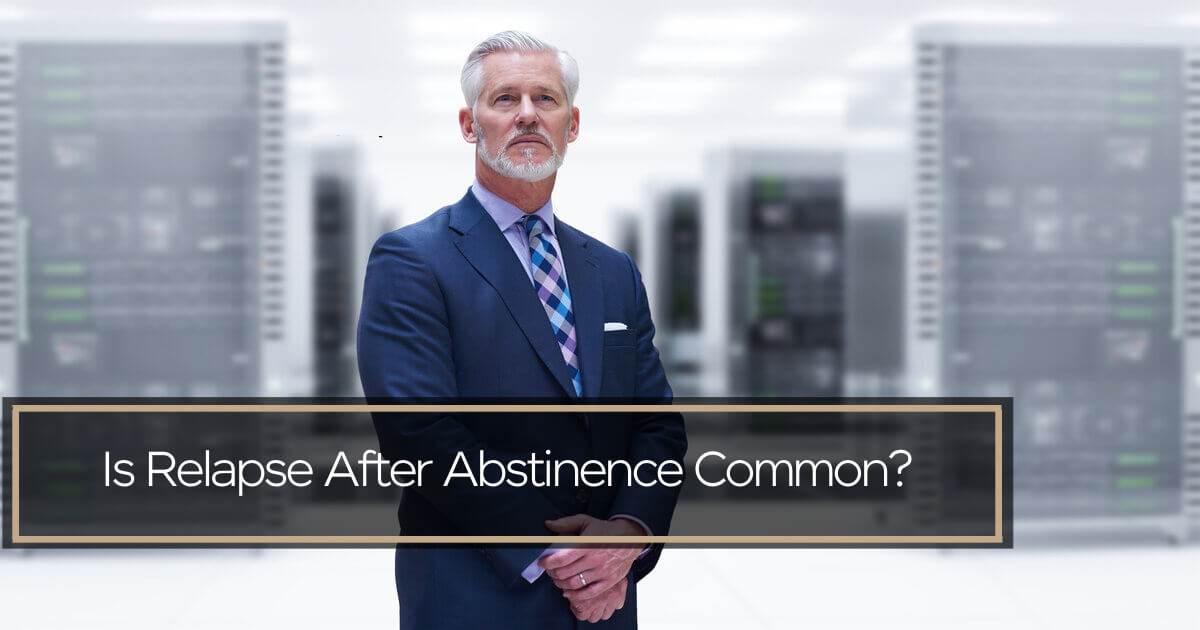Therapeutic programs can help people with substance use disorders break the addiction cycle and stop using drugs and alcohol. When you leave a treatment program, you have a new set of tools to help you maintain sobriety and are ready to start on the path toward long-term recovery.
However, staying sober can be difficult, and it is possible to experience a relapse after treatment. This post explores the topic of returning to drug and alcohol use after treatment and ways to avoid relapse to help you understand this common aspect of addiction recovery.
How Often Do Users Relapse After a Short- or Long-term Stretch of Sobriety?
Maintaining sobriety after treatment requires an ongoing effort, and it’s not uncommon for people to make progress, suffer a setback with a relapse, then continue on the path forward again. Addiction relapse statistics indicate that forty percent to sixty percent of people with substance use disorder will have a relapse after a short or long-term period of abstinence from drugs and alcohol.
Does Addiction Relapse Mean That Substance Use Disorder Treatment Has Failed?
All too often, people think of relapse as a sign of failure. Not only is this notion incorrect, but it can discourage and demoralize a person who experiences a relapse. Thinking that their active recovery treatment didn’t work or that they are a failure may encourage a person to seek out drugs and alcohol more.
What relapse means becomes more apparent when you understand that addiction is a lifelong disease. Through individual and group therapy and other interventions, people can become sober and develop coping strategies and habits to help them stay that way. However, when you leave treatment, your addiction isn’t cured. You will need to manage it throughout your life to continue sobriety.
With many chronic health conditions, people manage to get symptoms under control only to have them return at a future time. When someone experiences a sudden asthma attack after years without having one or finds that their blood pressure medication no longer controls their hypertension, no one accuses them of failing or claims that the interventions used didn’t work.
Relapse is no different than these examples. When a person relapses after a period of abstinence, it’s simply a sign that more interventions are necessary, not that the person or initial treatment failed.
How to Stay Committed to Sobriety
Staying sober is a choice you make daily to benefit your physical health, mental and emotional well-being, career or education, friends, and family. You can strengthen your commitment and foster sobriety by following these tips:
Plan for Your Triggers
During treatment, you likely learned to identify your triggers. Since you now know what your triggers are, shift your focus to managing them. What leads you to crave drugs or alcohol? What triggers can you eliminate or at least reduce your exposure to? What strategies can you use to deal with triggers you can’t avoid? Plan when you know you’ll be in a triggering situation. Practice what you’ll say and do so that you’re prepared to confront it.
Build a Support Network
Having people in your life who support you can make a dramatic difference in long-term recovery. Think back to all the people who asked how they could help when you entered rehab or began outpatient treatment. Reach out to them now. Be open and honest about your feelings. Tell them when you’re having a bad day or are struggling with triggers, so that you don’t have to face this feeling alone. Also, look for in-person and online support groups that can assist you.
Prioritize Stress Management
Managing stress is an integral part of relapse prevention. There’s no single best way to manage stress. The key is to find something that works for you. It could be exercising, listening to music, journaling, or enjoying a hobby. Relaxation techniques like breathing exercises, visualization, meditation, yoga, and mindfulness may also be beneficial. If something isn’t working, try a different method until you discover one that consistently relieves stress.
Practice Self-Care
Addiction can rob you of your self-esteem and trust in yourself. Self-care can help you heal and allow you to feel stronger and more empowered. Regular exercise, eating a healthy diet, taking pride in your appearance, avoiding unhealthy habits, and ensuring that you are receiving enough sleep are all investments you make in yourself and can help you stay sober. Celebrate your milestones, large and small, and acknowledge the hard work you’ve done to maintain sobriety.
Seek Relapse Treatment When You Need It
Following the previous tips can go a long way toward avoiding relapse, but in some cases, you may need additional help. There’s no shame in returning to inpatient or outpatient rehab after sobriety. This positive step speaks to your commitment to abstaining from drug and alcohol use.
If you’ve experienced a relapse, The Dunes East Hampton can help. We have various evidence-based treatment options available to help you start moving forward again. Contact us today for assistance.








